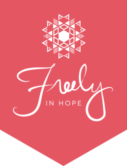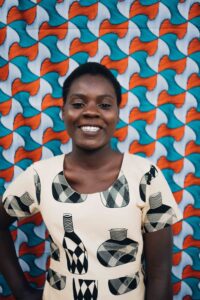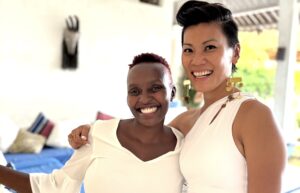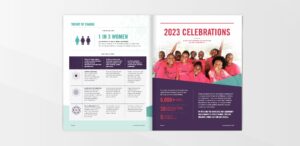Whether you are a month or a decade into your advocacy journey, self-care is absolutely essential when caregiving for survivors. The need for self-care and rejuvenation makes us human and should be embraced as a tool for better advocacy. Our work of advocacy must be sustained through self-care as we bring healing to ourselves so that we can bring about healing to our community of survivors.
Here are 5 points to help you practice intentionality in caring for yourself:
1. You can't pour from an empty cup.
If you have ever flown on an airplane, you know that in the case of an emergency you must ensure that your own oxygen mask is in place before helping to save others. This principle illustrates the need for caregivers to prioritize their own wellbeing in order to ensure the wellbeing of others. Self-care is absolutely necessary in order to be a strong advocate against sexual violence. As a caregiver, mentor, or ally, it can be especially difficult to integrate self-care into your routine. Placing the needs of everyone else before your own may come naturally, but you will eventually reach burnout if you are not aware of your own limitations. Caring for yourself will equip you to be a better caregiver to survivors.
2. Caring for yourself builds consistency.
Caring for yourself is an act of self-compassion. You may feel guilty switching gears to cater to your own needs instead of others, but self-care is not selfish. Self-care is a healthy, restorative act and without it we cannot continue functioning at our best. As a caregiver, prioritizing yourself may not come automatically, so you must be intentional in your daily routine. Sometimes small, lifegiving practices or breathing exercises are enough to rejuvenate us. When we are consistent with these daily rhythms, we will be consistent in our work and advocacy.
3. You are a human, not a savior.
When working with survivors we must remember that we, too, are human. It is easy to adopt a savior mentality but instead we must position ourselves as allies. We are not working for survivors, we are working with them. This understanding removes the pressure of being a hero, because we realize that true caregiving supports survivors as they learn how to advocate for themselves. Through knowing that we are humans with limited capacities, we are allowed to create healthy boundaries. Sometimes establishing a boundary is as simple as saying, “I do not have the capacity to fill this expectation right now.” An important part of effective allyship is holding yourself accountable and being realistic with your commitments.
4. Caregiving is a constant learning experience.
Caregiving is a constant learning experience. If we forget that we are supposed to be learning, we become destabilized as advocates. Entering with the mentality that you are learning from the survivors (as they are also learning from you) allows you to be open-minded to learning new perspectives, approaches, and experiences. This position gives the survivors that you are working with a form of validation and autonomy. Many survivors have had their voices suppressed due to disbelief, ignorance, and victim-blaming. When you show survivors that they are worth learning from and that their opinion is being acknowledged, they will feel confident to present the best version of themselves.
5. Shared experiences of pain can also bring shared healing.
If you are a caregiver who is also a survivor, it is important for your self-care to be trauma-informed. When caring for survivors, it is very easy to become re-triggered, but this does not mean you have not healed. Each survivor’s tolerance threshold is different, and healing will continually happen day by day. Advocacy work with survivors can support your own healing process—shared experiences of pain often bring shared healing. When you are triggered by a story or situation, recenter yourself and reach out to someone else for encouragement and support. Maybe practices such as verbal affirmations or meditation come easier to others, and that is okay. Your safe space may be journaling, exercise, or even taking time alone to yourself. For survivors, self-care is about reclaiming your worth. It is an act of defiance against those who caused you to believe that you are not worthy. But even though it requires intentionality and practice, caring for yourself is something that you can claim ownership over. Your methods of self-care may look different than someone else’s because your battles look different. Be patient, kind, and caring with yourself in your advocacy journey. Remember the wealth of powerful, internal resources you possess that have brought you here today.
Let's Empower Survivors of Sexual Assault to Thrive
Your donation will help survivors thrive through high school and university scholarships, mental health support, safe housing, healthcare, and leadership development.
The butterfly hug
Try this butterfly hug exercise to center and calm yourself whenever you feel your anxiety rising. This is a helpful exercise to bring their bodies to awareness and safety. To support your mental health journey, we also have a print-out version with instructions to use for personal or organizational use. Get the download below!
Download the Butterfly Hug PDF
You have Successfully Subscribed!
BY JOAN NGARUYIA
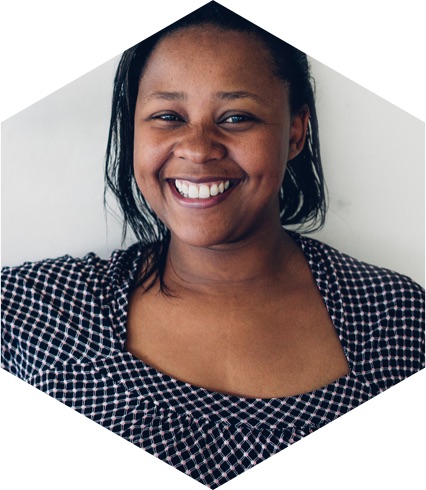
Joan’s great passion is helping those who have been through traumatic experiences. She tirelessly supports their journey toward healing—ultimately helping them rediscover themselves as strong dignified individuals. As a counselor with Freely in Hope, she believes in empowering survivors through various methods of therapy, including trauma-focused cognitive behavioral therapy, to help raise the next generation of survivor-leaders who will champion the end of violence. Joan graduated Magna Cum Laude from Daystar University in Kenya with a Bachelor’s Degree in Psychology. For over 7 years, she has had the privilege of working with different institutions to prevent violence against women. Outside of work, she loves reading a good book and taking nature drives.
